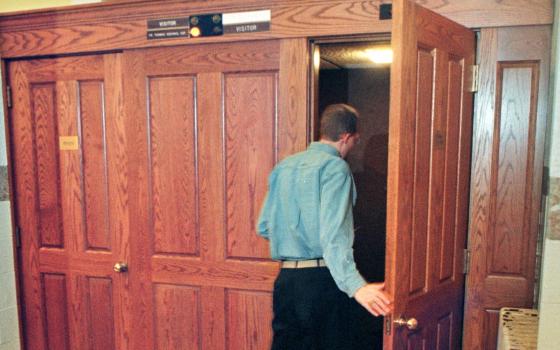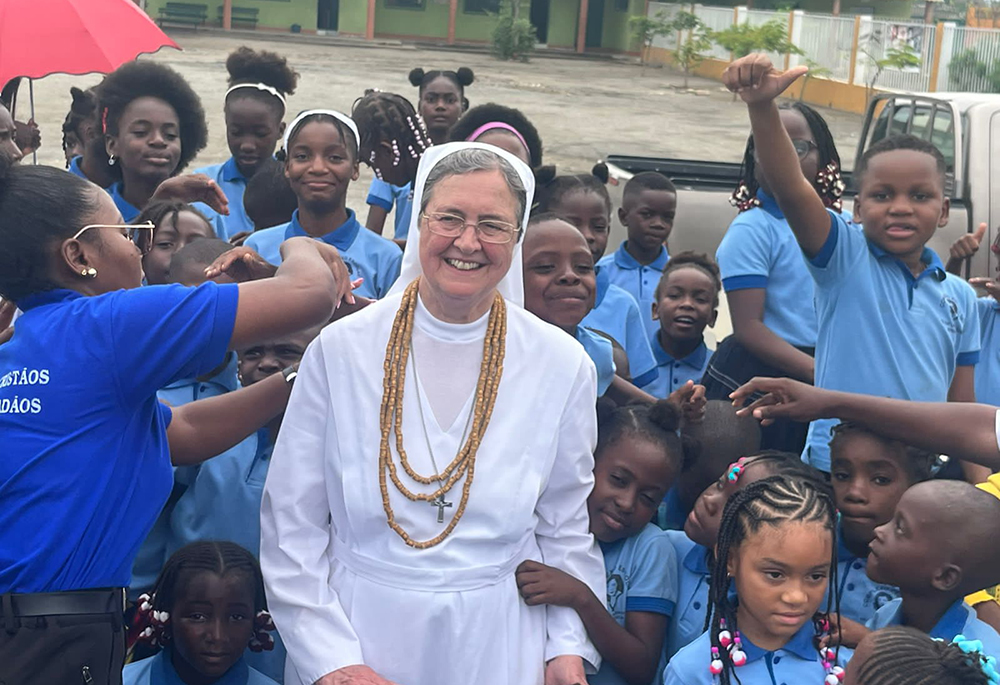
Mother Chiara Cazzuola visits a school in Benguela, Angola, in 2024. (©Istituto Figlie di Maria Ausiliatrice)
Mother Chiara Cazzuola was on a spiritual retreat when the email came announcing she was appointed as a member of the Dicastery for Institutes of Consecrated Life and Societies of Apostolic Life by Pope Leo XIV.
It wasn't until the retreat was over and a fellow sister called with congratulations that the honor became clearer.
For the last four years, Cazzuola has served as the superior general to the Daughters of Mary Help of Christians, also known as the Salesian Sisters or the Salesians of Don Bosco — an order of consecrated life born from the inspiration of St. John Bosco and the work of St. Mary Domenica Mazzarello.
A native of Italy, Cazzuola made her first profession of vows almost 50 years ago on Aug. 5, 1975, in Castel Gandolfo — just south of Rome. She has a degree in literature and served as a teacher for a number of years before becoming a principal in the Tuscan Holy Spirit Province.
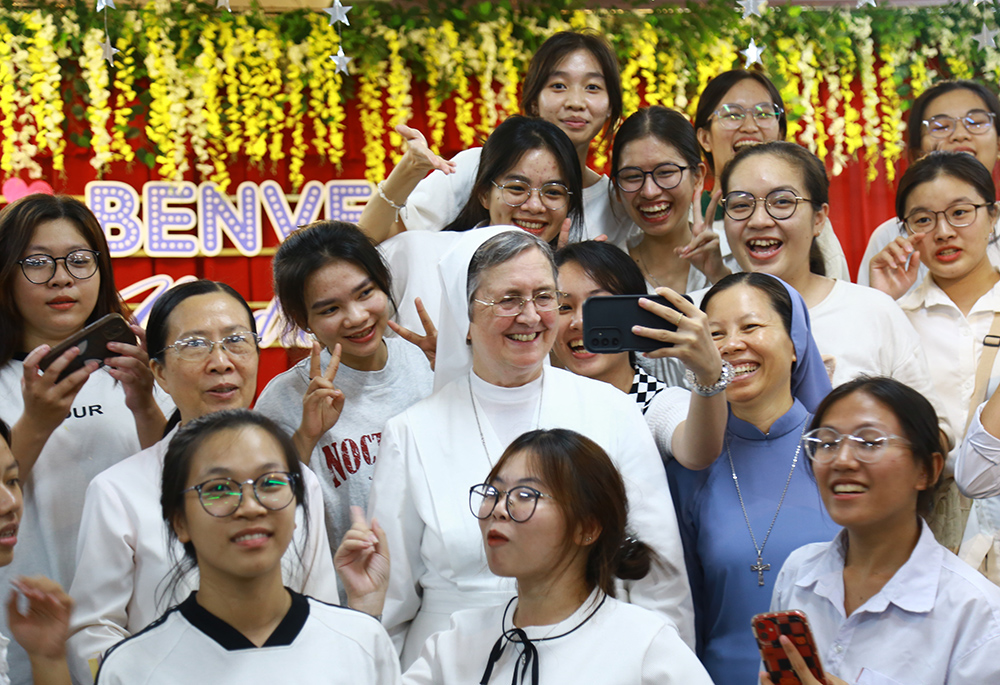
Mother Chiara Cazzuola meets with students at a university residence in Vietnam in 2025. (©Istituto Figlie di Maria Ausiliatrice)
From 2008-2014, Cazzuola served as the visiting councilor, enabling her to visit a number of countries where the Salesian Sisters are located across the Americas and Europe. In 2014, she was nominated as moderator of the 23rd general chapter and then vicar general.
Cazzuola spoke to Global Sisters Report about her appointment to the dicastery and the importance of having a female presence in the Vatican.
Global Sisters Report: You were appointed on June 24 as a member of the Dicastery for Institutes of Consecrated Life and Societies of Apostolic Life by Pope Leo XIV. How did you hear the news and how did you feel?
Cazzuola: I received an email informing me that the following day the appointment would become official. The Vatican Press Office was going to publish my name among the members of this dicastery in a consulting role.
Things like this always make me a little shaky, especially because it wasn't clear exactly what the role involved. There was an attachment to the appointment letter with the name "Leo XIV" in Latin. This really struck me. But, I received the email when we were on a spiritual retreat, so I forgot about it. I had read it, processed it briefly, and then, I don't know why, I just didn't think about it.
The next day, I got a call. We have a sister who works at the Vatican in the dicastery — she's the secretary to the prefect, Sr. Simona Brambilla. She called to congratulate me. I didn't even remember what she was referring to. We were in church during adoration, and I noticed she kept calling insistently, so I stepped out. "Congratulations, congratulations!" "For what?" I asked. "You've been appointed! The announcement has been published!" And that's how I found out it had become official.
At first, I didn't say anything to anyone, but the other council members found out. This sparked a mild reaction because some thought I might not continue as superior general. But that's not the case. My role is consultative in the dicastery. Every now and then, I imagine we'll be called together to offer perspectives — in this case, on the world of female consecrated life.
Advertisement
How does your new role in the dicastery relate to what you have done so far as superior general of the Salesian Sisters?
It's all new to me. I'm in my fourth year as superior general. In the past, I've served on the council, first as a visiting counselor and then as vicar. But this new responsibility is entirely different. I'm aware that I represent a global institute, and I think that's what the dicastery is interested in — not so much that I'm Sister Chiara, but that I'm responsible for an institute with this broad scope.
You were appointed with cardinals, bishops and other female superior generals. What do you think is the importance of having this female presence in the dicastery, the Vatican and the church as a whole?
Today (July 22), we celebrate Mary Magdalene. I genuinely believe women possess a unique sensitivity and that's not to diminish the qualities men bring. I grew up with brothers, so this is certainly not meant as a criticism of men — quite the opposite. But I think what we, women, have is an added gift.
This morning, I was thinking: Mary Magdalene goes to the tomb alone, in the dark. The disciples are all hiding in fear. She goes perhaps because a woman is less visible than a man and the disciples were already being watched. But she goes, she sees, and she believes. She comes back and tells the disciples. Then Peter and John go, but they leave and she stays.
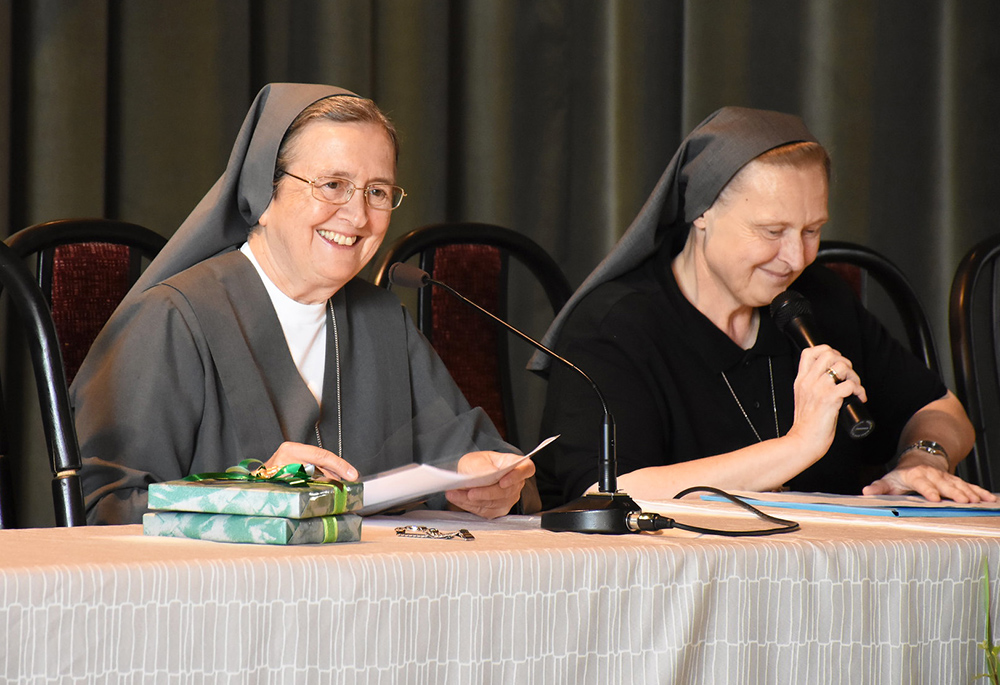
Mother Chiara Cazzuola speaks at a conference in Slovakia in 2024. (©Istituto Figlie di Maria Ausiliatrice)
That's what I think the feminine presence in the church brings: a gaze that goes further. It's a mother's gaze. We've all had that experience of stepping into our mother's house and she already senses what we're feeling, even before we say a word. I think the church needs this.
We're not meant to become priests, and I'm not getting into that debate, because I feel at peace with who I am as a consecrated woman in the church, just as I am. But we must bring the light from our hearts, a way of seeing that is not just rational, but emotional and life-giving. The church is first and foremost a mother. I read that Pope Francis spoke of Mary as the image of the church. And Mary is, before all else, a mother. I think that's what we women are called to offer.
Looking ahead, do you think this new role you're taking on will in some way change the lives of the Sisters of the Institute in other parts of the world?
No, I think not because in one sense, we are already moving forward, and in another, our governance is decentralized. We have a central government, but there are also "inspectorates," which are like provinces. They come together in inter-provincial conferences. So we are in constant contact — online through circles, letters, phone calls and also in person. The Institute continues to move forward, and the charism grows as it comes to life in different places.
I cannot go to one place and say that the Salesian charism is only present there. In India, Vietnam, Australia, the United States, I can say the Salesian charism is everywhere. It's a charism that is so open and strong that it takes root in every context, respecting each culture. But, I'd also say, it enriches that culture. At the same time, the charism itself grows because it's not something to keep locked in a drawer. It's something alive, something that keeps growing.
This is something very close to my heart: that the experience of being part of the church is alive within the Institute. We are the church. Sometimes we say, "We have to go to the parish to be the church." No, we're already church. We're within the church, which is the people of God in action.
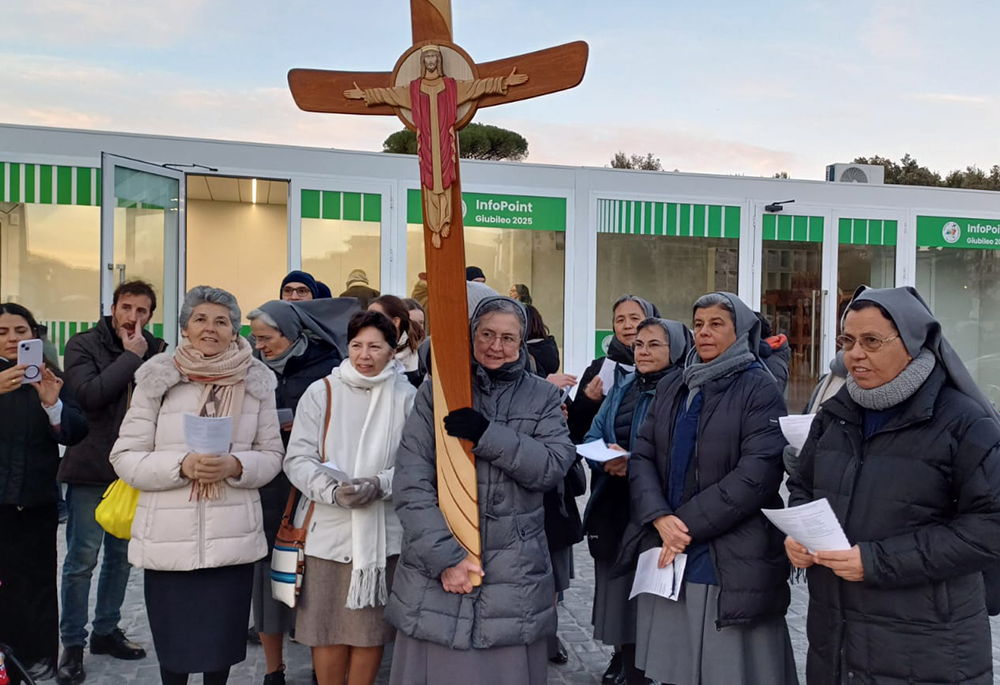
Salesian sisters, including Mother Chiara Cazzuola, making a pilgrimage to the Holy Door in St. Peter’s Basilica in December 2024 (©Istituto Figlie di Maria Ausiliatrice)
We've inherited from St. John Bosco and Mother Mazzarello a special love and loyalty for the pope. Whether it was Francis or now Leo XIV — whoever the pope is, for us, he is the pope. So that fidelity is lived out in our openness to the church's teaching and in the support we offer through daily prayer. I love that we pray every day for the pope. We teach our students, their parents, and the whole educational community to pray for the pope, because he too needs our support.
At the same time, our openness to church teaching means being the first to promote it, making sure it reaches everyone — every community, and all the people we come into contact with.
What is the mission and charism of the Institute of the Daughters of Mary Help of Christians?
Our mission is fundamentally educational. We were born from the dream of St. John Bosco and Mother Mazzarello to educate young people, especially the poorest and most in need. These are St. John Bosco's exact words. What drives us is this desire for young people to encounter Jesus. The heart of our mission is to help children and youth meet Christ.
Within that encounter lies everything that concerns the whole person. One biblical image I love is of the little girl Jesus raises — Talitha kum. Not that our youth are dead, but we want to help them "rise up," to awaken the life and gifts within them — sometimes buried, crushed or suppressed. We're present in many parts of the world where there's great suffering. We want these young people to give the best of themselves for a better world, to be good Christians and honest citizens — as St. John Bosco taught. That pairing sums up our mission. One cannot exist without the other. For us, evangelization is just as important as education.
We're not trying to convert people or proselytize. We work with children and youth of all backgrounds — Buddhist, Hindu, Muslim. We do not leave anyone out. But what we offer is an education in human values, which are at the root of Christianity. So, there is also room for an encounter with Christ. When? Only he knows.




